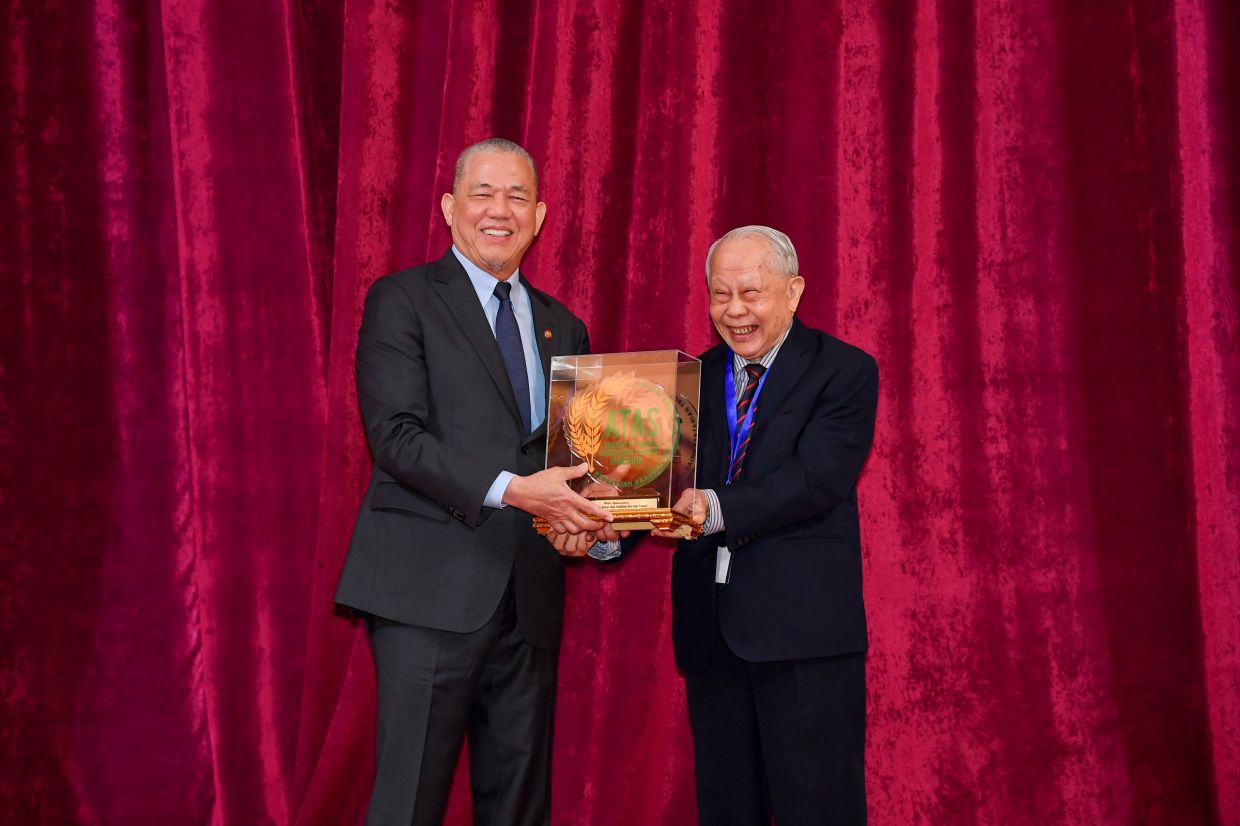KUALA LUMPUR: Carbon is currency and sustainability is a moral duty, says Datuk Seri Fadillah Yusof.
He said Malaysians must realise that tropical crops are key to the country’s climate future.
The Energy Transition and Water Transformation Minister said this in his opening speech at the Tropical Crops Carbon Credit Forum 2025 on Monday (Nov 24).
“Increasing droughts, shifting rainfall, soil degradation and volatile markets are not abstract issues,” he said.
Fadillah said these issues threaten food supply, the economy and rural communities.
“As climate accountability reshapes economies worldwide, Malaysia stands ready to do the impossible. We are ready to turn nature into a national asset and tropical crops into climate champions,” he said.
“We will turn carbon management into shared prosperity. Our tropical crops hold the key to Malaysia’s climate future,” he added.
Fadillah added that Malaysia’s palm oil, rubber, rice, bamboo and forest landscapes are not merely economic commodities.
“They are living carbon sinks that can capture emissions, restore soils and rejuvenate ecosystems. If managed sustainably, they can make Malaysia a global leader in the tropical carbon economy,” he said.
Fadillah said this includes leadership in climate resilience, green innovation and ethical stewardship and added that sustainability must be inclusive.
“It must uplift farmers, empower communities and ensure nature based solutions also become prosperity based solutions,” said Fadillah.
“Malaysia’s story began with the soil. From rice fields that fed our ancestors to forests that shaped our heritage, agriculture is our identity. Millions of farmers, smallholders and rural families built Malaysia’s early economy,” he added.
He said they now stand on the frontline of a climate crisis shaping a new chapter, adding the Natural Resources and Environmental Sustainability Ministry’s National Carbon Market Policy targets net zero emissions by 2050.
“The forthcoming National Climate Change Bill will safeguard the integrity of Malaysia’s carbon credits,” he said.
Fadillah said every tonne traded must reflect real and measurable impact.
The Deputy Prime Minister called for collaboration across all players.
“Agencies, universities, financiers, partners and industries must move as one ecosystem,” he said.
He said it must be grounded in trust, strengthened by data and guided by science, and
Malaysia must craft solutions tailored to its biodiversity and landscapes.
Fadillah added this includes precision carbon measurement, regenerative agriculture and innovative green finance.
Earlier, Academy of Tropical Agricultural Sciences Association president Tan Sri Prof Dr Augustine Ong called for closer study of palm oil carbon sequestration.
He said more than 20 million hectares of oil palms in Malaysia release over 100 million tonnes of carbon yearly.
TCCCF 2025, themed “Sequestering Carbon, Securing Livelihoods,” brings together policymakers, scientists and industry leaders.
It aims to ensure both large plantations and smallholders benefit equitably from the carbon economy.


